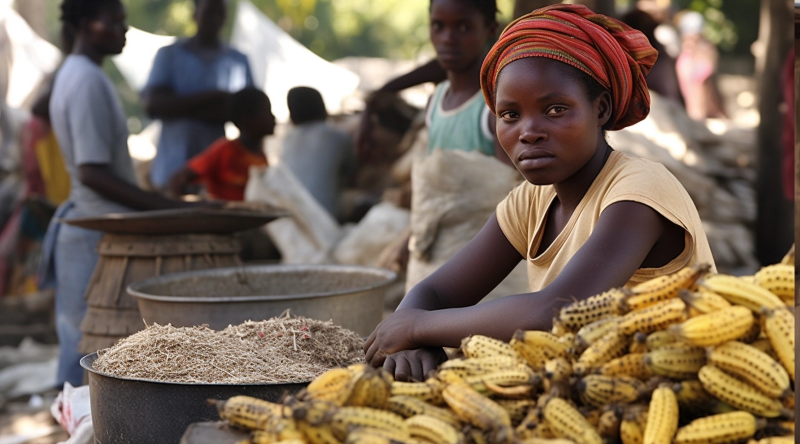
A recent report supported by the United Nations reveals that a staggering 4.9 million people in Haiti, nearly half of the country’s population, are currently facing severe levels of acute food insecurity.
According to the latest analysis from the integrated food security phase classification (IPC), published on Sunday, 1.8 million individuals are in the emergency phase, indicating significant food consumption gaps leading to high rates of acute malnutrition and excess mortality. Many households are resorting to negative coping mechanisms such as selling assets or consuming seeds meant for planting, further exacerbating their vulnerability. The Food and Agriculture Organization (FAO), one of the report’s global partners, highlights the urgent need to address this dire situation, particularly considering that 75 percent of Haiti’s population resides in rural areas heavily dependent on agriculture.
FAO emphasizes the importance of swift action to save lives and restore the agricultural livelihoods of vulnerable farmers. For instance, investing as little as $125 in a market-gardening seed package can yield vegetables worth 20 times that amount, ensuring families have access to food and the opportunity to generate income by selling part of the produce.
Under the 2023 Humanitarian Response Plan, FAO has launched an appeal for $61.7 million to support 700,000 people in improving their access to food. The plan focuses on providing agricultural inputs such as seeds and fertilizer to boost staple food and vegetable production during the 2023 spring and winter seasons. Additionally, efforts will be made to protect livestock assets through the provision of poultry and goats, along with vaccines and veterinary treatment.
In a separate report jointly released by FAO and the World Food Programme (WFP) on Monday, it was highlighted that acute food insecurity is expected to worsen in 18 hunger “hotspots” globally. These hotspots are facing escalating hunger due to multiple and overlapping shocks, including conflict, climate extremes, and economic crises. Burkina Faso, Mali, Sudan, and Haiti have been designated as areas of highest concern, with communities at risk of starvation or sliding further into catastrophic conditions.
The report underscores the need for immediate attention to these critical hotspots, emphasizing the urgency of addressing the escalating food insecurity crisis. To learn more about the United Nations’ efforts to assist the people of Haiti, please visit their website.

